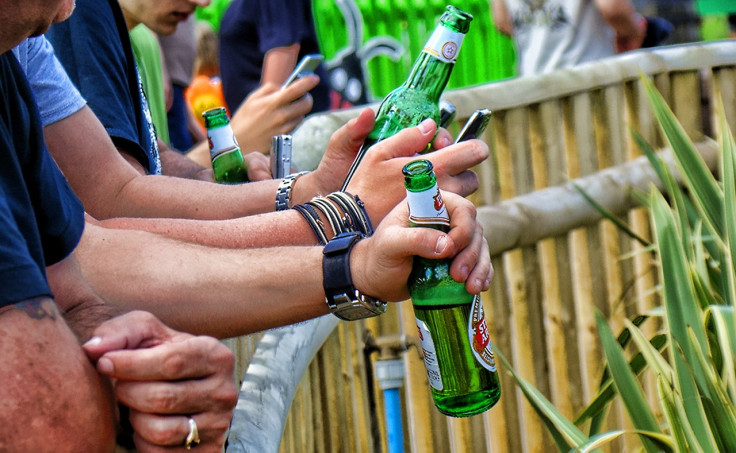Fetal Alcohol Syndrome: Researchers Say Men Should Abstain From Drinking At Least 3 Months Before Conceiving

Paternal alcohol consumption has links to elevated risk of fetal alcohol syndrome, which causes irreversible brain damage and growth deformities in children. Researchers from Texas A&M University now say men should abstain from drinking at least three months before conceiving.
A research team, led by Dr. Michael Golding, had previously found that the father's drinking habits may cause brain and skull deformities in his baby. In a new study, published in Andrology, the team noted that the effect of paternal drinking on sperm lasts much longer than expected.
A child with fetal alcohol syndrome may have distinct facial features, including small eyes, thin upper lips, smooth skin surface between the nose and upper lip, and may have deformities of joints, difficulties with vision, small head size, heart defects and slow physical growth. The child may also have poor social and behavioral skills, intellectual disability, poor coordination and issues with memory, attention, and moods.
Fetal alcohol syndrome was earlier associated only with the mother's alcohol consumption. To diagnose FAS, doctors are currently required to confirm only if the mother has consumed alcohol during pregnancy.
"For years, there's really been no consideration of male alcohol use whatsoever. Within the last five to eight years, we've started to notice that there are certain conditions where there's a very strong paternal influence when it comes to alcohol exposure and fetal development," Golding said in a news release.
"When someone is consuming alcohol on a regular basis and then stops, their body goes through withdrawal, where it has to learn how to operate without the chemicals present. What we discovered is that a father's sperm are still negatively impacted by drinking even during the withdrawal process, meaning it takes much longer than we previously thought for the sperm to return to normal," he added.
Alcohol consumption causes oxidative stress that interrupts the normal cellular activity of the body. The same kind of oxidative stress occurs even during withdrawal, which extends the duration of alcohol's effects on the body for a longer period than previously thought, researchers explained.
The team noted that a person experiences withdrawal even when the consumption of alcohol is in small quantities.
"In the models we're using, even drinking three to four beers after work several days a week can induce withdrawal when the behavior ceases. You may not feel inebriated, but your body is going through chemical changes," Golding said.
Researchers believe the findings will guide couples planning to conceive by showing them when to quit drinking to avoid birth defects.
Although further research is required to pinpoint the exact timeframe needed to neutralize the adverse effects of alcohol, based on the current findings, researchers recommend discontinuing drinking at least three months in advance.
"There's still a lot of work to be done to get a hard answer, but we know that sperm are made over the course of 60 days, and the withdrawal process takes at least one month. So, my estimate would be to wait at least three months," Golding said.
Published by Medicaldaily.com



























